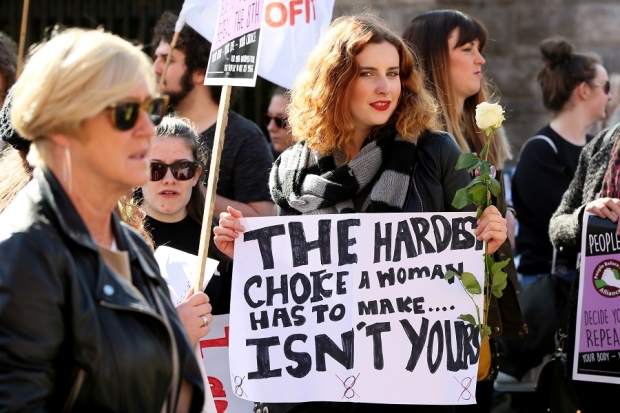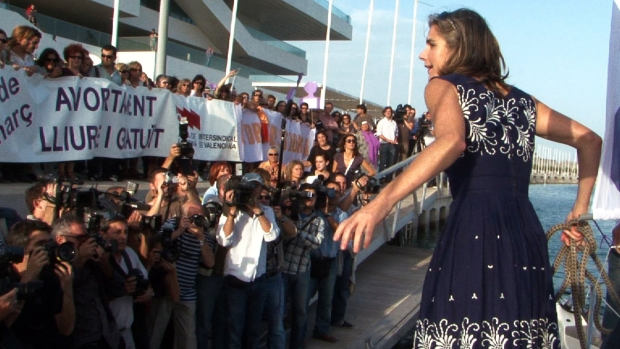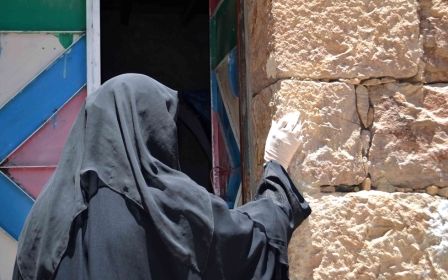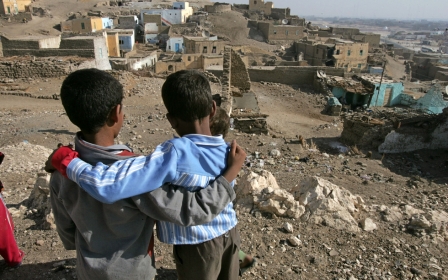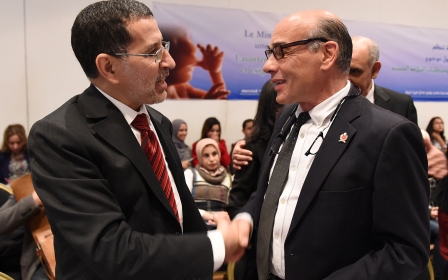'Help me before my relatives kill me': Aiding abortion in the Middle East
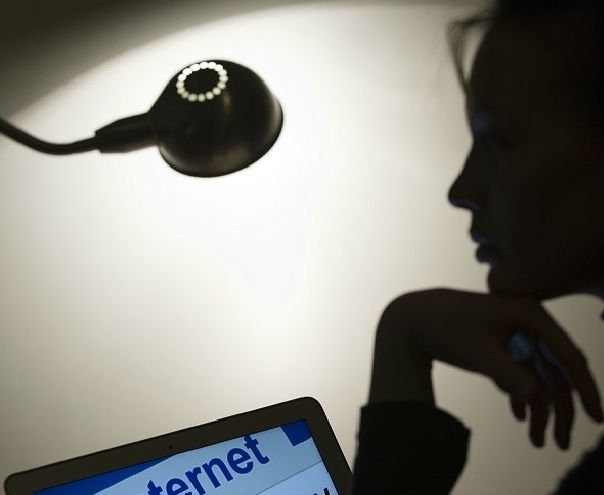
AMSTERDAM - "Dear Women on Web, I'm sorry for being a burden to you, but you are my only last hope," reads the email from a Kuwaiti woman in Nour Saadi's inbox.
Saadi, a doctor originally from Aleppo, Syria, knew straight away what it was about. Like the hundreds of other emails she receives monthly from women across the Arab world, this was yet another urgent plea for help doing something that is technically illegal in their countries: getting an abortion.
"I don't want me and my future baby [to] suffer inside jail and leave my parents without financial support. I am the only breadwinner of my family and it's my biggest mistake to trust a man who only ruined my life. I really regret it," the email continues. "Please help and save me."
It's my biggest mistake to trust a man who only ruined my life. I really regret it
- a woman seeking an abortion
Saadi now lives in the Netherlands and works for Women on Web, a Dutch pro-choice non-profit organisation.
Staffed mainly by volunteers, it assists women in difficult situations seeking a first-trimester medical abortion - irrespective of their circumstances or location.
Doctors in the non-profit explain that abortion is safer in the first trimester, while in the second and third trimesters, it gets more complicated.
Set up by Dutch doctor Rebecca Gomperts in 2005, it helps around 60,000 women every year, according to its founder, by providing advice on how to get specific World Health Organisation-approved pills that safely terminate a pregnancy, as well as general sexual health advise.
Although the drugs are sometimes seized by customs officials, most of the time the system works well, with the notable exception of Brazil, where packages almost never get through.
Nearly two-thirds of the world's countries ban or severely restrict abortions, including the entire Arab world with the exception of Tunisia. This is due to various cultural, religious and social reasons.
The emails Saadi receives every day testify to the difficult situations women are placed in by the lack of access to safe and legal abortions.
"Really I need your help," writes one woman from Sudan. "I am a poor women [and] I have 2 children but have no job. So now I got pregnant. Really I hate myself. I am thinking to end my life [just] to get [some] rest. I can't get more responsibility and get [a] new baby. Plz help me. Really I am in [a] bad, bad situation."
Some women are even at risk of losing their lives.
"I am a refugee in Sudan and I have [an] unwanted pregnancy," another woman explains. "I don't have anyone who can help me, so please help me before my relative kills me."
Breaking point
In Jordan, unless the pregnancy threatens the mother’s life, abortions are criminalised under the penal code, with women facing between six months and three years in prison for either inducing their own miscarriage or undergoing the procedure.
According to Justice Ministry figures released earlier this year, some 49 Jordanian women have been imprisoned for abortion between 2009 and 2016.
But this has not deterred women who are desperate.
"I decided to have an abortion because my husband's salary is just not enough," explains Amal, a 35-year-old homemaker living in the impoverished Jordanian province of Zarqa.
Already a mother to two children, she knew a third would push them to breaking point because her husband earns a salary of just $210 a month.
I wish that Arabic countries and media would talk more about a woman's right to get this service
- Nour Saadi, doctor volunteering at Women on Web advice service
"If I had not done it, I would be in a terrible psychological state,” she says, “and my family would suffer.”
Her husband supported her, as did her friends and family. "The general attitude towards abortion in Jordan is that everyone rejects the idea," she tells Middle East Eye. "But I told everyone and no-one objected. My husband was very understanding."
She came across Women on Web after doing research on the internet. “I chose their services because abortion in my country is illegal and very expensive,” she explains, “and they gave me this service for free after they understood my situation.”
After completing an online consultation with a licensed doctor that covered her medical conditions and the risks associated with the abortion, she was asked to donate around 90 euros, a routine request that helps fund the organisation’s work.
When Amal said she could not afford it, Women on Web agreed to get her the drugs anyway.
They arranged to send her abortion pills mifepristone and misoprostol, along with lengthy instructions explaining how to use them, what she would experience afterwards, and the side effects to watch out for in case something went wrong.
Mifepristone blocks the hormone progesterone, which is required to sustain a pregnancy; while misoprostol prompts contractions that expel the embryo from the uterus.
Amal did not suffer any complications. According to a recent study by the University of Texas, almost 95 percent of women using abortion pills obtained online safely end their pregnancy without surgical intervention.
If I had not done [the abortion], I would be in a terrible psychological state
-Amal, mother
Women on Web says two or three in every 100 women that undergo medical abortions have complaints such as excessive bleeding or ongoing pain, and are advised to seek further medical care.
The organisation requires all women using its services to make sure that when they take the drugs they are not alone and are able to reach a hospital within an hour.
Health risks
For most women in the Arab world, getting an abortion is usually very dangerous. Because it is illegal, it often involves unqualified doctors and unnecessary health risks.
“Complications from an unsafe abortion can be life threatening, especially when performed in unsanitary settings, by unskilled providers or both; and many women may not seek post-abortion care treatment at all in fear of legal reprisals or mistreatment,” explains Rita Nehme, who works on reproductive health at the International Rescue Committee.
From eight to 18 percent of maternal deaths around the world are estimated to be due to unsafe abortions, nearly all of which occur in countries where abortion is banned or severely restricted
“Seeking an illegal abortion also makes women and girls more vulnerable to financial extortion, with providers often charging high prices, and sexual and verbal harassment," Nehme adds.
Those without money or connections often resort to high-risk solutions, such as drinking abortion "potions" made of poisonous herbs or harmful chemicals, punching themselves in the belly or inserting sharp objects inside themselves.
According to the United Nations Population Division, an average of nearly 2 million abortions occurred every year in Western Asia and North Africa between 2010 and 2014, with some 60 percent of these procedures deemed unsafe.
On a global scale, from eight to 18 percent of maternal deaths around the world are estimated to be due to unsafe abortions, nearly all of which occur in countries where abortion is banned or severely restricted, according to Human Rights Watch.
According to WHO, so long as the person providing or supporting the abortion is properly trained, abortions are completely safe if done with a WHO-recommended method appropriate to the pregnancy duration.
Support
On top of the physical ramifications of an unsafe abortion, there is also a psychological toll. The need for non-judgemental, supportive services can clearly be seen from the follow-up emails sent to Saadi from those who have used Women on Web.
One Emirati woman thanks the non-profit for the support by saying, "Not only have you made a potentially scary experience less so, by all your advice prior to the procedure, but you continue to provide much-needed support even afterwards. This is essential to ease the mind and bring peace to the woman."
I'm single. In most Muslim countries, if a single girl gets pregnant, it's a big shame for her and her family
- Egyptian woman
Women on Web also provides a long list of suggestions if women are feeling depressed after their abortion. For many women, however, the overwhelming feeling is one of relief.
Another woman from Bahrain requesting an abortion writes, “I live in an Arab country and I'm alone here so I'm feeling so scared, but finding you is one good thing in this terrible situation.”
Women on Waves
Women on Web grew out from Women on Waves, a Netherlands-based non-profit set up by Gomperts back in 1999. Using a Dutch ship, in 2001 she and a team sailed to Ireland - where abortion is illegal unless the mother's life is in danger, based on an amendment giving an unborn child a right to life equal to that of its mother. This was part of an attempt to provide their services from the safety of international waters, where Irish law does not apply.
"It changes the debate," she says from the organisation's Amsterdam office. "It breaks through the status quo and changes perceptions of the topic. It also informs women about medical abortions."
Although Women on Web is blocked in many countries such as Turkey and Saudi Arabia due to the fact that it provides an illegal service, the website provides numerous workarounds to allow people to still get in contact with them.
They have also set up an Arabic-language Facebook page called Ijhad (which means abortion in Arabic) where women can get information via Messenger, an alternative option which is more accessible, particularly for those without an email address. They also have an app on Google Play.
Half of the challenge is breaking through the silence around the issue, which is heavily taboo in the Arab world.
"I wish that Arabic countries and media would talk more about a woman's right to get this service," says Saadi. "It is taking place in these countries anyway, but under the table. In Arabic countries we have two lives, one in public and another one [in] private. No one can say what they want."
An Egyptian woman who successfully used abortion drugs based on the organisation’s recommendation writes: "I'm single. In most Muslim countries, if a single girl gets pregnant, it's a big shame for her and her family.”
"I was very happy that [the] medicine worked. If not, I could face a big problem searching [for] other ways."
This article is available in French on Middle East Eye French edition.
New MEE newsletter: Jerusalem Dispatch
Sign up to get the latest insights and analysis on Israel-Palestine, alongside Turkey Unpacked and other MEE newsletters
Middle East Eye delivers independent and unrivalled coverage and analysis of the Middle East, North Africa and beyond. To learn more about republishing this content and the associated fees, please fill out this form. More about MEE can be found here.



